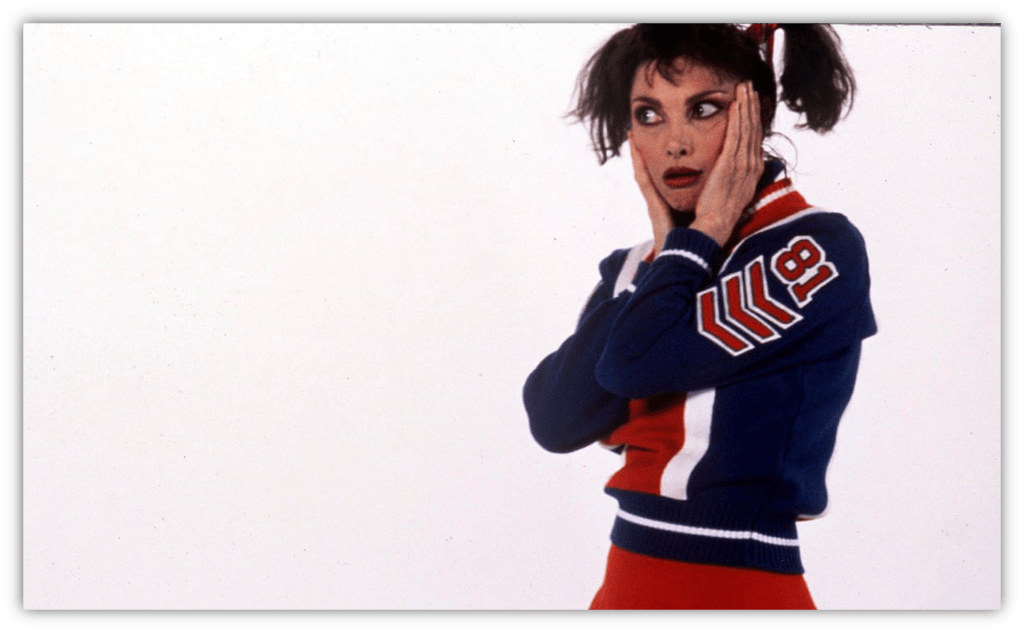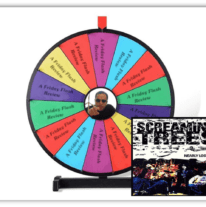The idea about copyright and people receiving credit for their work has caught my attention for a long time. Some recent posts over at The Number Ones have made me do some research.
But first, some context:
In 2019, Mexican singer José José (who, in my opinion, if he hadn’t surrendered to his inner demons and addictions, could have been bigger than Julio Iglesias) died after a long battle with cancer. Not too long after this, I heard from an entertainment journalist who said that at least two of the performer’s greatest hits were inspired by some of Jose’s own personal memories.
What José did was tell a songwriter a story. Who then turned it into a song.
The journalist believed that the songwriter should had given José a proper credit, or at least share the royalties with him. According to some, this is the current practice for many reggaetón songs: the singer sometimes just throws out an idea or comes up with a line, and then a group of songwriters will put the song together – yet the artist retains a songwriting credit.
So this leads me to think about some things that we have learned from The Number Ones columns. One example is what Toni Basil did with Mickey: she basically reinvented an existing song, switched genres and created a chant that no one’s forgotten to this day.

Tom Breihan thought that Toni deserved songwriting credit, and I agree.
Throughout the years we’ve seen some examples of sampling in the rap and hip-hop genres, some of which have led to lawsuits. Over at the mothership, the song I’ll Be Missing You was recently analyzed. Many of us noted that Sting has secured 100% of the royalties. Whether this was his lawyer’s idea or his own, we don’t know.
I never understood why Puff Daddy didn’t ask Sting for his permission in the first place; perhaps this was an ego thing? Maybe he simply thought that he could get away with it? Or thought he could ask for permission later, because he saw the urgency to release the song quickly? Who knows?

Is it fair that Sting has credit for all of lyrics, even as Faith Evans and Puff’s ghostwriter put their creativity into the process? It’s debatable.
Last decade, we witnessed the infamous Blurred Lines lawsuit. It ended badly for all the people involved, especially Robin Thicke. After this, he has been incapable of creating another hit. And for better or for worse, it had change the way how the songwriters are credited now. For instance, the late Tom Petty received a credit practically without asking for it.

But the question here is: should someone demand a songwriting credit? What would be their motivation?
First of all, it’s about justice – what’s fair is fair. If someone puts his or her effort and creativity, their name has to be written.
Then, it’s a matter of recognition. Whether you’ve made a masterpiece, or complete trash, you still would want that everybody knows it was yours.
The negative side of looking at this would be: for pure greed and ambition. Without getting inside this subject… the theme of the royalties is complex and there are many artists that are receiving insane amounts of money.
It’s lucrative and everybody wants a piece of that. Ask the Marvin Gaye estate.
Of course, the work behind a song should be rewarded, but do you think it’s fair that some producers can be called songwriters just by shouting a line, name checking themselves, or making just a small contribution to a song?
If you could create the new “Old Town Road”, would want your name in the credits?
Let the author know that you liked their article with a “heart” upvote!





Fun read! I look forward to Tom’s discussion of “Blurred Lines”, mainly because I thought the Gaye Estate were greedy, but it turns out they weren’t – and it is a crazy story:
https://youtu.be/HYgwAQmS5WE
Thank you thegue. This video is very interesting and informative, it has made me change my perception about Pharell.
If anyone’s listening to Hit Parade, the most recent show was all about the Virginia Beach rap scene, with a big focus on Timbaland, Missy Elliot, and Pharell. Fantastic episode.
WOAH. Look who’s in the house!
Welcome Welcome, Rabbits Rabbits!
That was a great breakdown of the legalities and messiness of the Blurred Lines case. Thanks for that link thegue.
Thank you. I definitely learned some things from watching that video.
Great topic! Actually, I am just starting to write my own post about imitation and copying on my music history blog, which will of course cover this idea of intellectual property.
I am personally of the mind that intellectual property is BS. I wish it didn’t exist, and that people simply made money off of the particular recordings that audiences like to hear, whether they had any hand in the writing or not. I think that would be much more fair across the board (and we wouldn’t have to worry about arbitrary red lines for originality versus borrowing), but alas, we have to deal with the world we live in, not the world we want. Given that such legal fictions do now exist, I don’t begrudge anyone for trying to get their piece of the pie.
…Unless you were someone who benefitted greatly from borrowing the music of others without paying royalties and then later on you get all huffy about young artists stealing your intellectual property (ahem Rolling Stones, David Bowie, and many others). That’s just crappy.
Thank you Phylum. I like the intellectual property subject too, and I think I should have made a degree about it.
There’s a saying among Nashville songwriters. “Add a word, get a third.” It means that if there are three of you in the room, you each get a third of the credit. Your mere presence helped make the song what it is.
I had heard a story about “Put A Girl In It” that turns out not to be true, but it’s still a good story. There are rooms available for songwriters to write together. Two guys were just starting a session and a friend of theirs stuck his head in and asked what they were up to. They said they were just starting to write a song and they guy said, “Well, put a girl in it.” and walked away. They gave him a songwriting credit.
The real story is almost as good: https://www.songfacts.com/facts/brooks-dunn/put-a-girl-in-it
Thank you V-dog. The ethics is important in this subject too, and we all have realized that not every musician has it.
Great post, Edith G.
It’s safe to say that this issue will continue to develop. I have started to wonder what will happen when AI starts creating music/has its first #1 and, by chance, writes something that we have all heard before–or something a little too similar to what we have heard before.
I need to listen to more Jose Jose. I am only somewhat familiar with his later work in bossa nova.
Thank you mm. If you want to know José José’s work, I would suggest everything from his early years, when he was a crooner and his voice was at his prime.
Always found it fascinating the way bands determine who gets credit. Its impressive that the likes of Radiohead and REM credit songs to the band as a whole regardless of input. And then there are the bands where its purely on the basis of who wrote a particular song. Its not surprising ‘musical differences’ occur if someone feels they aren’t getting their due.
Exactly JJ, as it was said about Sting and The Police in TNOCS from the mothership. Thank you for reading.
Fascinating topic Edith, and excellent debut contribution to mt’s Happy Place!!
I can’t believe after all these years some people still don’t agree on what songwriting actually pertains to – some argue its lyrics only, some argue its the music and melody also. I go back to a court ruling 20 years ago that all map companies I worked for made sure to drill in our brains – you cannot copyright content and data. That exists as fact. What is copyrightable is the presentation, the symbols, the specs, how that data is portrayed. And only that.
So how does that translate into a song? Are notes just notes, melodies are just melodies, so the sounds created are just an accepted part of the universe? Or is it how those notes are presented that can be protected legally, as if to copyright a sound? At what point do you have to give credit to a lyric that was used in another song – 3 words ok, but 4 words of something recognizable is the minimum??
I have no answers to these questions, just more things that came to mind reading your article Edith! No wonder courts are so backlogged with lawsuits about music rights – there is no easy answer, other than just do the honorable thing.
Thank you dutchg8r, this theme is fascinating and complex too.
There was an urban legend going around a few years ago that Metallica was trying to copyright the E and F chords. It was a joke, of course, because that’s pretty much the same as trying to copyright the words “the” and “this.” Like you said, you can’t copyright data, just the presentation.
I enjoyed your piece, Edith G. Yesterday, honest, I texted my old avatar asking if there were any books about John Lennon and Yoko Ono that goes into detail about the writing process behind the title track from “Imagine”. I couldn’t tell from synopses if the books acknowledged Yoko Ono’s contribution. She was awarded a co-writing credit in 2017 by The National Music Publishers Association.
After The Turtles/De La Soul kerfuffle, Puff Daddy should have called Sting. I was under the wrong impression that all artists asked the original artist permission to sample their song after 1989. I was under the wrong impression that The Beastie Boys’ “Paul’s Boutique” was the last time an artist could get away with it.
He never got back to me. Now I know why. I forgot to pay my phone bill.
Thank you cappie. Most of the people (including me) underrates whatever contribution that Yoko could have made, and like it or not, she probably deserves her own credit.
Hi Edith. Happy to see you contributing here.
Copyright laws and songwriting are inherently messy, and I’m not sure how you can fix the system without unintentionally making it worse.
All i know is Perry Farrell is a jerk. I liked Jane’s Addiction, but the way he handled songwriting credit with the band was sketchy as fuck. He got 50% up front and the whole band (including him) split the other 50%. So he got 62.5% and the other guys got 12.5%. No wonder they didn’t last that long…
Given that most Porno for Pyros songs don’t come near the majesty of Jane’s Addiction songs, methinks Mr. Farrell was overvaluing his contributions.
Hi Pauly, thank you for reading. I didn’t know that information about Perry Farrell before, and that makes him indeed a jerk and horrible human being.
perhaps Puffy didn’t ask Sting for permission because he was looking for Andy Summers number. Honestly: the sample is the guitar riff, a riff that Andy created for the song. Someone should have asked him was he cool with it. At least.
(I heard that the comeback tour that the Police did a few years later was Stings apology/payback to Andy. Can anyone confirm?)